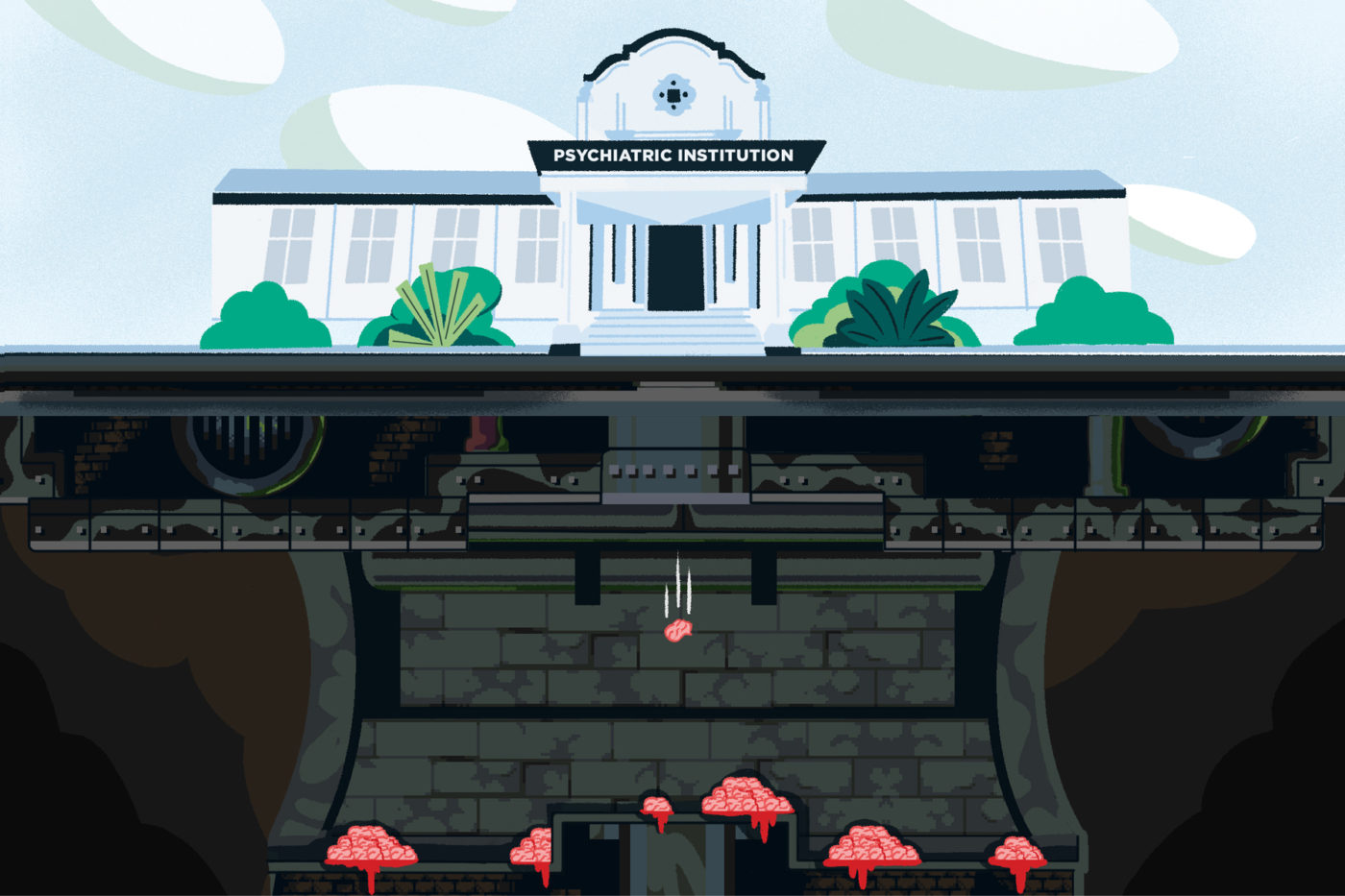LAST OCTOBER, the Philippine Medical Students’ Association-UERM posted a series of photographs showing the rundown pavilions of the National Center for Mental Health (NCMH). These photographs, albeit outdated, prompted viewers to reflect on the lack of support given to mental healthcare in the country.
With the approval of the Mental Health (MH) Act in 2018 and the rise of mental health issues during the COVID-19 lockdown, mental health is now more recognized as a national concern. However, inaccessibility and age-old stigma remain the biggest fissures in mental health and psychiatric treatment.
A century of mental care
Decades before the MH Act was established, state institutions have been actively providing psychiatric care—albeit underfunded and centralized to the north. Mariveles Mental Wellness and General Hospital (MMWGH) and the NCMH are the only two hospitals providing tertiary care for mental disorders in the Philippines. Since the early 1900s, treatment in the country has been centralized at the NCMH in Mandaluyong City. Meanwhile, the MMWGH in Bataan was initially built as an extension service for the NCMH to receive patients abandoned by their families.
Aside from the three state-sponsored psychiatric institutions in Luzon, 32 out of 58 private psychiatric facilities in the Philippines are located in the National Capital Region. In compliance with the MH Act, the NCMH is currently working to decentralize mental healthcare to the community level. MMWGH Chief of Hospital Dr. Lourdes Evangelista said at a public revalida that there is a deficit of mental health professionals, especially in rural areas. She also lamented that government spending for mental health is only 0.22% of total health expenditure.
However, NCMH Medical Specialist III Dr. Joeffrey Cruzada noted that recent budget increases have finally allowed NCMH to renovate their aged facilities. “I think there’s more budget now compared [to] before… I think most of our buildings have been renovated,” he explained. “Not only us, but also other areas that have mental health facilities.”
Aside from financial concerns, the long-standing stigma against mental health has also discouraged those in need to seek help. In a bid to move past this, Evangelista confirmed that the MMWGH—formerly Mariveles Mental Hospital—underwent the name change. “The name wellness center resonates positivity, [intended] to change the mindset of people who will utilize our services–that they are here not because they are ill but because they wish to be well,” she said.
In addition, MH Act author and principal author Senator Risa Hontiveros has pressured the Department of Health (DOH) to fully implement all the provisions of said law. As officials increasingly recognize the need for accessible and well-funded mental health services and programs, more doors to fill in the gaps within the country’s mental healthcare systems open.
The needs of the new era
The Hontiveros-backed MH Act brings renewed hope for the future of mental healthcare through notable provisions: Decentralization mandates such as LGU-led mental health programs, as well as the integration of mental health services into fundamental hospital operations.
Cruzada added that the Act’s legal authorization has incentivized LGUs to formulate their own MH programs and policies. Though arduous and complex, he believes that collaborative effort with LGUs will launch the integration of mental health into the country’s public healthcare system.
To ensure that the goals of decentralization are met, Cruzada noted that the NCMH has reached out to LGUs through “creating modules and treatment guidelines” prescribed by the DOH. These measures, he said, will assist LGUs in developing local mental health systems that can identify and promote treatment for nearby patients. However, the LGUs’ efforts to spread awareness of existing programs appear to be inadequate. Cruzada noted that there are several mental health facilities in Davao, Cagayan De Oro, and Zamboanga but the public is not aware of their existence.
Accessibility matters
With the MH Act in place, rebuilding the national mental healthcare system to repair its cracks and fissures is underway. However, the implementation and execution of the Act’s provisions—primarily its logistical mandates—must be strictly supervised.
The MH Act’s Implementing Rules and Regulations (IRR) play a significant role in ensuring the fulfillment of these provisions. An open-line structure called the pyramidal referral system was introduced in Section 19 of the Act’s IRR to achieve decentralization. In this system, community-based general practitioners are tasked to examine patients before referring them to the next mental health service provider such as acute psychiatric units and MH facilities.
Cruzada described this as the reason behind the prominent decline in patients from far-flung provinces visiting the NCMH. Similarly, Evangelista mentioned that the MMGWH has established its own referral system in Bataan to bridge the gap between patients and community-based treatment.
In citing proper measures to ensure community awareness, Cruzada stressed the importance of LGU presence and their willingness to create and adapt their own policies. According to him, there have been instances that mayors steer clear from discussions on mental health. “It’s still a battle against discrimination,” he admitted.
Society’s prejudiced views on seeking professional help have intensified the stigma surrounding mental illness. While lawmakers grapple with this issue, provisions dedicated to sustain the quality and accessibility of MH institutions are continuously challenged by the lack of budget and lenient implementation of decentralization programs. Ultimately, for as long as cracks and fissures in the MH Act’s execution are overlooked, the future of mental health system reconstruction in the country remains bleak.




